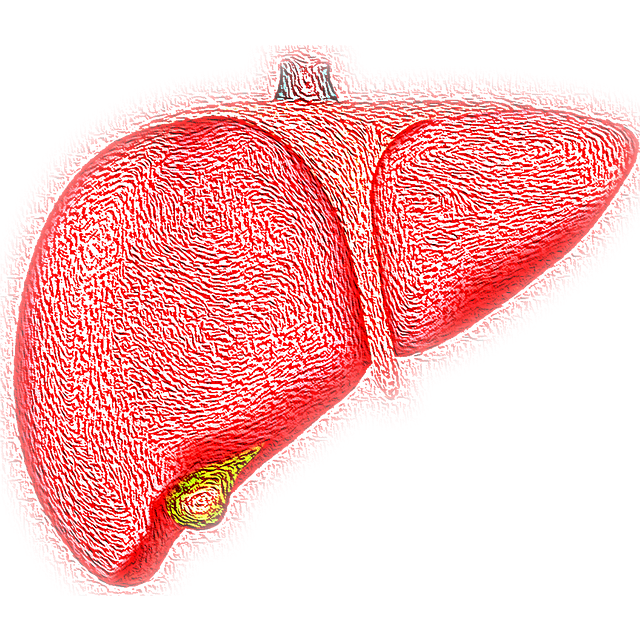When a liver is healthy, it provides a myriad of services
However, when liver cancer or disease has occurred, a liver transplant may be the solution for improved quality of life.

Functions of a Healthy Liver
- Breaks down food and beverages into different chemicals.
- Makes protein which are the building blocks for growth.
- Processes carbohydrates, protein, and fat and turns it into glucose.
- Stores glucose, vitamin B12, and iron.
- Disperses nutrients throughout the body.
- Filters the blood of toxins.
- Metabolizes and detoxifies harmful substances.
- Forms blood-clotting components.
- Produces bile that absorbs vitamins and fats.
Although the liver helps the body rid itself of toxins, some toxins hide in the fat portion of liver cells. Others formulate free radicals, causing harmful oxidation to the body. For a healthy liver, it’s important to fortify yourself with folate, B6, B12, and vitamins C and E. If a person is deficient of these vitamins, the detox possibility lessens and cancer-causing substances to infiltrate. When a liver has not functioned properly for a long period of time, doctors may determine that a transplant is required.
Liver Damage
Liver cancer, hepatitis C, alcoholic cirrhosis (scarring), or primary biliary cirrhosis (PBC) can damage the liver, eventually causing end-stage liver disease or liver failure. Patients with liver cancer can have a transplant provided a tumor is a maximum of 5 cm across, it’s 5 to 7 cm across and has been stable for no less than 6 months, or 3 small tumors no bigger than 3 cm across each. Children in need of a liver transplant typically suffer from biliary atresia (a deficient growth of the bile duct).
Symptoms and laboratory tests will verify a doctor’s diagnosis that a liver transplant is needed. These include severe damage, liver cancer, bacterial peritonitis, cirrhosis, fluid build-up in the abdominals, and hepatic encephalopathy.
Symptoms of Liver Disease
Should any symptom occur, call your doctor immediately for further evaluation.
- Ascites
- Dark urine
- Gray- or clay-colored bowel movements
- Itching
- Jaundice (yellow coloring of the skin or eyes)
- Mental confusion, forgetfulness
- Bleeding tendencies
- Vomiting with traces of blood
Liver Transplants
The only option for a person living with one of these conditions is to receive a liver transplant. There are three varieties of liver transplants:
- Donation from a deceased person – When a person dies, their organs can be immediately donated to candidates in need.
- Split donation – A liver donation that has been taken from a recently deceased body and split between two candidates. The liver will grow into a regular-sized organ.
- Living donation – During a living donor organ transplant, a section of the liver is removed from a living donor and is used for transplants.
Living Donors
Another option for patients needing a liver transplant is a living donation. For a person who decides to become a living donor, they have made a choice to save or improve the life of an organ transplant candidate. It is considered a gift and is not taken lightly by the patient, their family, or the medical community.
In most cases, a living donor is a healthy person who offers a whole organ (usually a kidney) or a partial organ (liver, pancreas, lung or intestine) to a candidate in need of an organ. Living organ donations started in 1954, and today, it accounts for more than 6,000 per year. It is interesting to note that only one in four of the volunteer donors is not a blood relative to the receiving patient.
Before making the decision to donate, be sure you fully understand the risks involved. This is surgery, and it can be as risky for you as it is for the patient. Upon consideration by a transplant center, you will receive a full mental and physical evaluation as well as a series of tests and X-rays. A complete medical history is needed as well as a blood sample for compatibility. A post-op situation will need to be thought through as well as temporary adjustments in personal and professional activities during recovery.
It is important to note that receiving payment for a donated organ is illegal (National Organ Transplant Act of 1984), but living donors can accept procedure reimbursement. The counselors at a transplant center can offer additional information.
Who Can be an Organ Donor?
People who are considering donating an organ must be over 18 years old and in good physical, mental and emotional health. They must be compatible with the organ candidate and free from liver cancer (and other forms of cancer), HIV/AIDS, high blood pressure, diabetes, hepatitis, and disease.
- Biological relatives (parents, siblings, and adult children.)
- Unrelated donors (spouse, partner, co-worker, or friend.)
- A “trade donor” involving two donors and two organ candidates.
- An anonymous donor.
Living Donor Kidney Transplants
A liver transplant removes a damaged or diseased liver and replaces it with a healthy liver. A transplant is needed when the liver can no longer function properly due to liver cancer or disease. The most common concern with a liver transplant is rejection from the body which could occur within the first two weeks after a transplant. To counter this reaction, prescription drugs are given to suppress the immune system. These medications will have to be taken for the duration of your life.
Those not able to donate include individuals who abuse substances such as drugs and alcohol. Other non-donors include those suffering from heart and/or lung disease, cancer, HIV, infection, or liver failure. Pregnant women and smokers are not considered for liver donation.
Liver Transplant Costs



